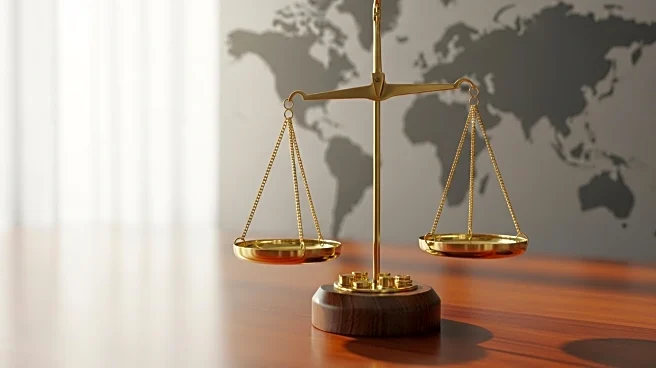What's Happening?
A U.S. appeals court has ruled that most of President Trump's tariffs are illegal, upholding a previous decision by the federal court of international trade. The court found that Trump's declaration of an economic emergency to justify these tariffs violates a 1977 law and the U.S. Constitution, which reserves taxation powers for Congress. The ruling addressed the legality of Trump's 'reciprocal' tariffs imposed during his trade war, as well as tariffs against China, Canada, and Mexico. While the court acknowledged the president's authority to impose sectoral tariffs, it determined that Trump exceeded his power with the global tariffs. The case is expected to be appealed to the U.S. Supreme Court.
Why It's Important?
This ruling has significant implications for U.S. trade policy and the balance of power between the executive and legislative branches. If upheld, it could limit the president's ability to unilaterally impose tariffs, reinforcing Congress's constitutional role in taxation. The decision may affect industries reliant on imports, potentially easing trade tensions with affected countries. Businesses and consumers could benefit from reduced costs if tariffs are lifted. However, the ruling also poses challenges for Trump's administration, which has used tariffs as a tool to address trade imbalances and other national concerns.
What's Next?
The Trump administration is likely to appeal the decision to the U.S. Supreme Court, seeking to maintain the tariffs. The outcome of this appeal could set a precedent for presidential powers under the International Emergency Economic Powers Act. Stakeholders, including businesses and trade partners, will be closely monitoring the case, as its resolution could impact international trade relations and economic strategies. Political leaders may also weigh in, given the broader implications for executive authority and legislative oversight.











